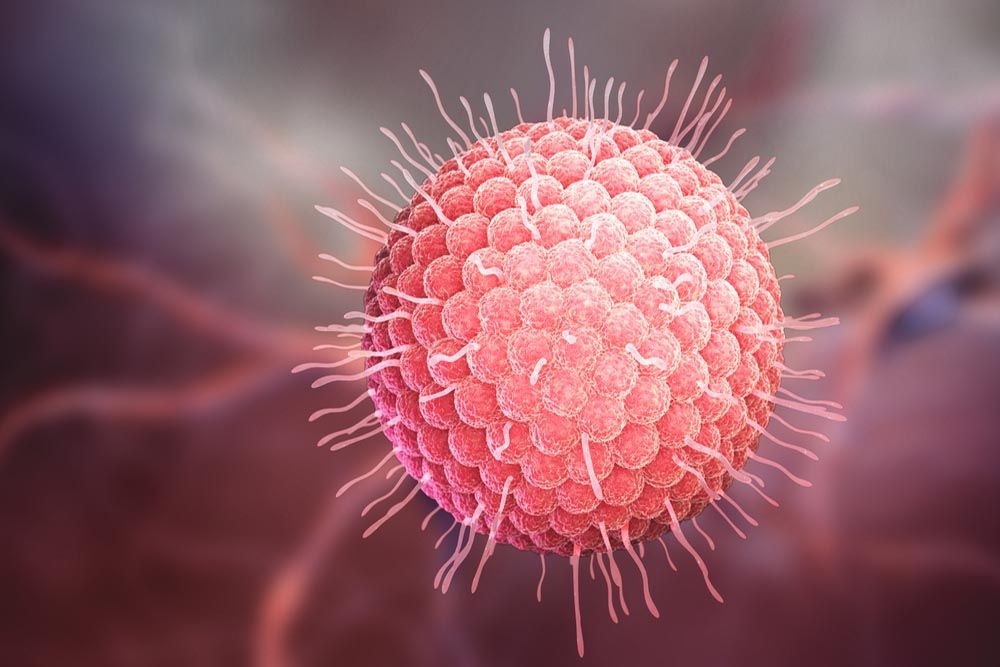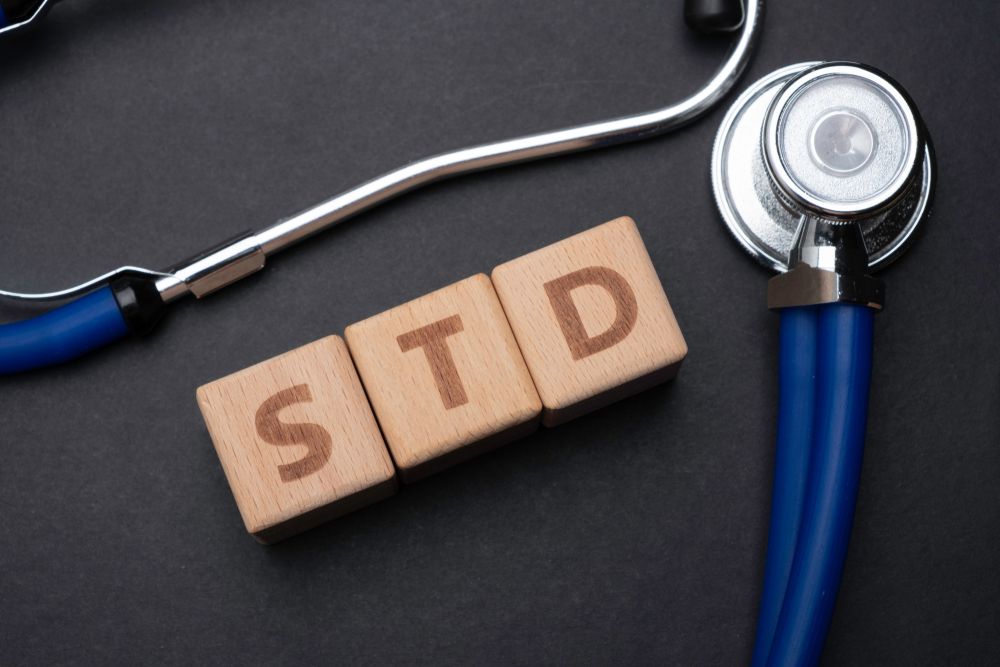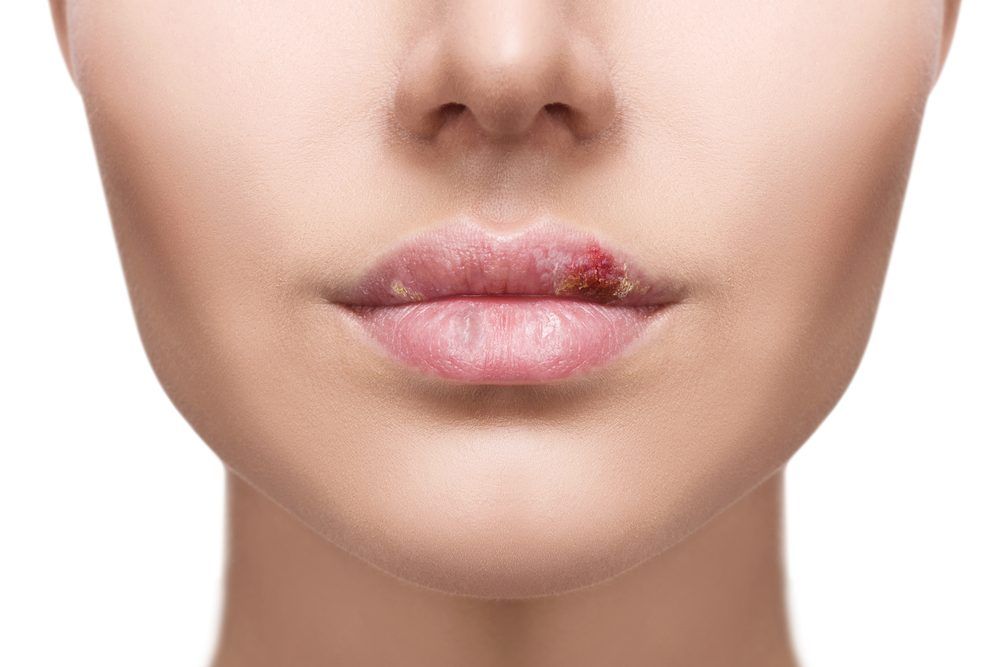There are eight types of human herpesviruses (HHVs) that affect people, with herpes simplex 1 and 2 (HSV-1 and -2) requiring the most medical attention. (Learn More) Other types of herpesvirus are very common in human populations and may require additional help from a doctor.
An antiviral prescription drug is the most common treatment approach. (Learn More) For HSV-1 and HSV-2, antiviral medications can be taken during outbreaks to treat acute symptoms or daily to manage chronic symptoms. (Learn More)
Most types of herpes are asymptomatic. If you do have symptoms, you may dismiss them as another condition. A doctor can tell you whether you have a certain type of herpesvirus or not. (Learn More)
What Is Herpes?

Most people associate the word herpes with either herpes simplex 1 (HSV-1) or herpes simplex 2 (HSV-2). These are both common, infectious skin conditions caused by herpes viruses, which may affect either the mouth or the genitals.
HSV-1 is more often associated with oral herpes, which causes cold sores and fever blisters. HSV-2 is more often associated with genital herpes, which looks similar to HSV-1 but appears on the penis, vagina, or anus.
There are actually over 100 types of herpes, a group called herpesvirus. Of these, only eight viruses affect humans, and even fewer than that require medical treatment.
Types of Herpesvirus That Affect Humans
Besides HSV-1 and HSV-2, there are six other human herpes viruses (HHVs) that affect people. These include:
- Human herpesvirus 3 (HHV-3). Most famous for causing chickenpox, HHV-3 also causes shingles, which is the reactivation of the virus in the body during adulthood. HHV-3 is also called varicella-zoster virus, and shingles in particular is called herpes zoster.
Chickenpox is characterized by itchy, sometimes painful, red, raised bumps all over the body. In children older than 6 and younger than adolescence, this virus is rarely dangerous, but in very young children or in teenagers and adults, the virus can be deadly. When HHV-3 recurs as shingles, one area or a band-like pattern of lesions and scaly skin will appear. The area will be painful, with persistent nerve pain being the main symptom after the initial outbreak.
A vaccine against chickenpox has been available since the 1970s, although the first chickenpox vaccine was approved in the United States in 1995. Vaccine brand names include Zostavax, Varivax, and Shingrix. - HHV-4, Epstein-Barr virus. This infection is most often associated with mononucleosis, or “mono,” which is a virus mainly affecting teenagers. It is sometimes called the kissing virus because the disease is spread through saliva, and among adolescents and young adults, it’s primarily spread via kissing. Sharing food, utensils, or drinks can also spread the virus, as infected saliva can be passed.
Although mono is very contagious, and symptoms can be painful and persist for two to three weeks, it is rare for a doctor to prescribe medication to treat the symptoms. If you experience recurring outbreaks, if healing is slower than expected, or if symptoms are severe, a doctor may prescribe an antiviral drug like valacyclovir.
Epstein-Barr may also cause Burkitt lymphoma, Hodgkin’s disease, nasopharyngeal carcinoma, and other forms of cancer later in life. - HHV-5, cytomegalovirus (CMV). Like any type of herpesvirus, CMV can affect a person of any age or sex, and it becomes a lifelong infection with no cure. This is also a very common form of herpesvirus, with more than 50 percent of people worldwide contracting it.
CMV can spread to infants through the uterus, birth canal, or breastmilk. It is also transmitted through saliva by sharing toys or utensils.
Signs of CMV include flu-like symptoms, but many people who have HHV-5 are asymptomatic for their entire lives. People with average, healthy immune systems are unlikely to experience any problems from having HHV-5, including any kind of symptoms. Those with compromised immune systems due to autoimmune disorders or a primary viral infection like HIV may experience significant effects, which require prescription antiviral medications, bedrest, and other treatment.
CMV is associated with a higher risk of hepatitis, a condition that damages the liver; some types of heart disease; hemolytic anemia; or gastrointestinal ulceration. These are uncommon problems, but if you are concerned, ask your doctor about your potential risks and how to manage them.
People who have CMV symptoms may receive a prescription for oral ganciclovir or valganciclovir for a minimum of 14 days or until the symptoms have ceased. - HHV-6, roseola. This condition primarily affects children, accounting for about 20 percent of all fever-related emergency room visits. It is also common in people who receive an organ transplant, as they have suppressed immune systems and are more likely to experience symptoms. The main symptom is high fever, along with a rash; other symptoms may include diarrhea.
The virus was not discovered until the 1980s, but it is believed that anywhere from 68 to 83 percent of children catch this virus at some point. There are no medications to prevent or treat HHV-6, including antiviral medications, although some of the CMV treatments are being tried as methods of managing roseola symptoms. - HHV-7, roseola. This is another form of herpesvirus associated with roseola, and it is so common that it is estimated to have infected the majority of humans. At least 95 percent of U.S. adults have HHV-7, most of whom contracted it before turning 6 years old.
Fever, diarrhea, vomiting, and seizures may be symptoms of this roseola virus if you have a suppressed immune system; however, the majority of people with HHV-7 have no symptoms at any point in their lives. There is no known treatment for HHV-7, similar to HHV-6. - HHV-8, Kaposi sarcoma. This is the most recently discovered form of herpesvirus, which appears to cause Kaposi sarcoma, which involves lesions on the skin, lymph nodes, and internal organs of people who have AIDS — the immune system-destroying form of HIV. About 35 percent of AIDS patients are believed to be infected. HHV-8 may also be found in people who have had organ transplants.
Like other types of herpesvirus, there are no cures, but HHV-8 is very treatable. Highly active antiretroviral therapy (HAART) is a combination of antiretroviral drugs that improve immune system function and reduce or prevent opportunistic infections like HHV-8 from becoming serious.
Managing Herpes Simplex 1 and 2
For the most part, HSV-1 and HSV-2 are the types of herpesvirus requiring the most medical attention, and these typically only involve medical treatment when they appear as genital herpes. If you have HSV-1 that appears as cold sores or fever blisters around your mouth, and you have frequent outbreaks that are painful and last for a long time, your doctor may prescribe an antiviral medication to suppress symptoms.
Both HSV-1 and HSV-2 are common skin conditions even when they are found on the genitals. Contact with the virus occurs through fluids, usually from one of the sores in the mouth, lips, anus, vagina, vulva, scrotum, or penis.
The most common prescription treatments for genital herpes are:
- Acyclovir (Zovirax).
- Valacyclovir (Valtrex).
These medications may also be prescribed to suppress oral herpes, chickenpox, and shingles symptoms. Both antiviral medications reduce the length of time symptoms last and promote healing of sores. They may be prescribed on an as-needed basis for people who have two or fewer outbreaks per year. This means they can take the medication as prescribed when symptoms begin.
For people who have three or more outbreaks per year, especially for the first year, it may be important to take an antiviral medication daily, to support the immune system and reduce the risk of outbreaks. Once the rate of outbreaks is controlled, you and your doctor can reevaluate how frequently you must take this medication.
Most Types of Herpes Are Asymptomatic
You may not know you have a herpesvirus, and if you experience symptoms like a fever, joint pain, or a few small pimple-like sores, you may easily dismiss them as something else. The best way to determine the cause of your symptoms is for a doctor to diagnose you. This will help you get appropriate medical treatment.
If you have a healthy immune system, few of the eight types of herpes will affect you, but HSV-1 and -2 are the most likely to need treatment.
References
How Many Types of Herpes Are There? Hims.
Herpes Viruses. (October 19, 2016). Patient.info.
Cytomegalovirus. (August 1, 2016). Patient.info.
Kaposi’s Sarcoma. (January 7, 2016). Patient.info.
Oral and Genital Herpes. Planned Parenthood.
Genital Herpes: Diagnosis and Treatment. (October 3, 2017). Mayo Clinic.

















